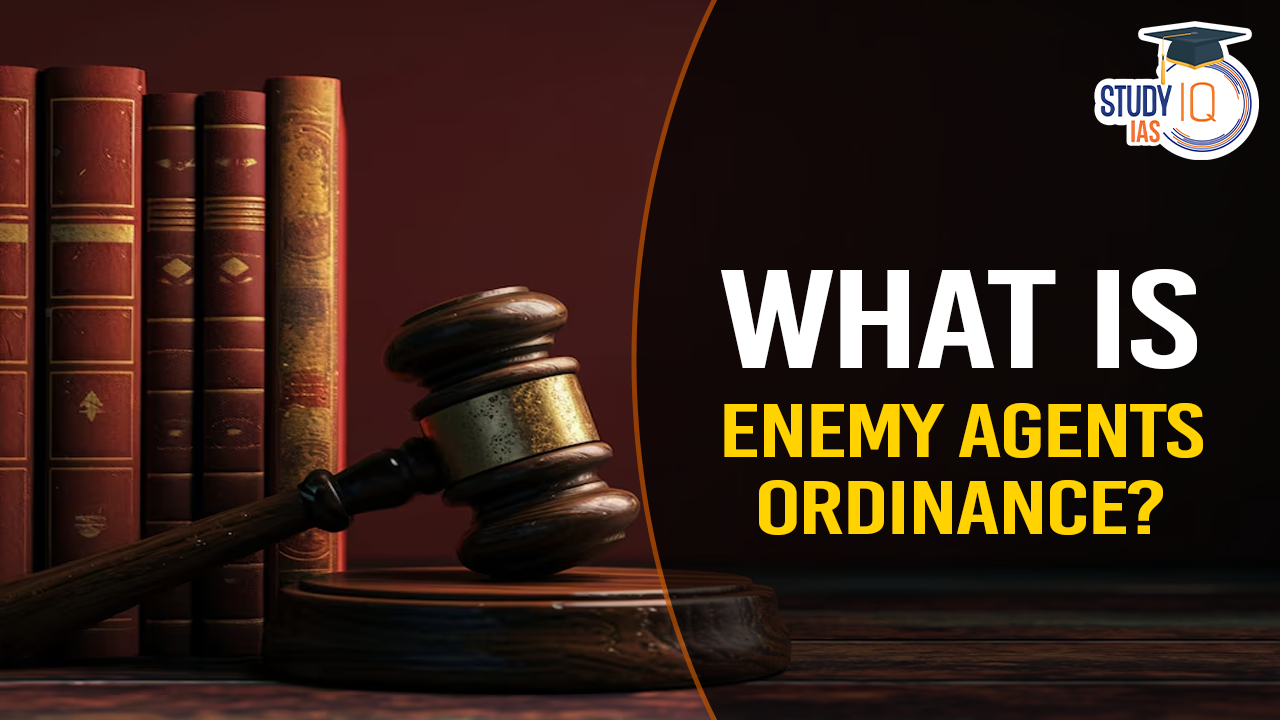Table of Contents
Context: Jammu and Kashmir Director General of Police (DGP) said those found assisting militants in J&K should be tried by investigating agencies under the Enemy Agents Ordinance, 2005. The law is more stringent than the Unlawful Activities (Prevention) Act (UAPA) and has the punishment of either a life term or a death sentence.
What is Enemy Agents Ordinance?
The Enemy Agents Ordinance is a law specific to the Union Territory of Jammu and Kashmir (J&K) in India. It deals with people who aid enemies of the state. A law to prosecute those who collaborate with forces considered enemies of the Indian state in J&K.
The specific provisions and applications can vary depending on the country and context in which it is implemented. However, the core purpose of such an ordinance generally remains consistent: to protect national security by identifying, detaining, and prosecuting individuals deemed to be acting against the interests of the state.
Origin of Enemy Agents Ordinance
- The J&K Enemy Agents Ordinance was first issued in 1917 by the Dogra Maharaja of J&K.
- Referred to as an ‘ordinance’ because laws during Dogra rule were called ordinances.
- Post-Partition in 1947, it was incorporated into the legal framework of the erstwhile state and later amended.
Provisions of the Ordinance
The ordinance states: “Whosoever is an enemy agent or, with an intent to aid the enemy, conspires with any other person to perform any act designed or likely to assist the enemy or impede military or air operations of Indian forces, or endanger life, or is guilty of incendiarism, shall be punishable with death, rigorous imprisonment for life, or imprisonment up to 10 years and liable to fine.”
Legal Framework Changes Post-2019
- With the repeal of Article 370 in 2019, J&K’s legal framework underwent significant changes.
- The Jammu and Kashmir Reorganisation Act listed state laws that would continue and replaced several others with Indian laws.
- Security laws like the Enemy Agents Ordinance and Public Safety Act remained; the Ranbir Penal Code was replaced by the Indian Penal Code.
- Other laws, such as The Scheduled Tribes and Other Traditional Forest Dwellers (Recognition of Forest Rights) Act, 2006, and The Scheduled Caste and the Scheduled Tribes (Prevention of Atrocities) Act, 1989, were extended to J&K.
Trial Process under the Ordinance
- Trials are conducted by a special judge appointed by the government in consultation with the High Court.
- The accused cannot engage a lawyer unless permitted by the court.
- The ordinance specifies that an accused can be defended by a pleader if the Special Judge or reviewing Judge grants permission.
- There is no provision for appeal against the verdict; a High Court judge chosen by the government reviews the decision, which is final.
- The ordinance prohibits disclosure or publication of case details, with penalties of up to two years imprisonment, fine, or both for unauthorised disclosures.


 Delimitation: Issues, Legal and Constitu...
Delimitation: Issues, Legal and Constitu...
 SAMARTH Udyog Bharat 4.0: Transforming I...
SAMARTH Udyog Bharat 4.0: Transforming I...
 BHIM 3.0 Launched by NPCI: Key Features,...
BHIM 3.0 Launched by NPCI: Key Features,...





















